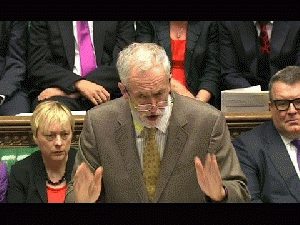In autumn 2002 Ed Vulliamy, a correspondent for Britain's Sunday Observer newspaper, stumbled on a terrible truth that many of us already suspected.In a world-exclusive, he persuaded Mel Goodman, a former senior Central Intelligence Agency official who still had security clearance, to go on record that the CIA knew there were no WMD in Iraq. Everything the US and British governments were telling us to justify the coming attack on Iraq were lies.
Then something even more extraordinary happened. The Observer failed to print the story.
In his book Flat Earth News, Nick Davies recounts that Vulliamy, one of the Observer's most trusted reporters, submitted the piece another six times in different guises over the next half year. Each time the Observer spiked the story.
Vulliamy never went public with this monumental crime against real journalism (should there not be a section for media war crimes at the Hague?). The supposedly liberal-left Observer was never held accountable for the grave betrayal of its readership and the world community.
But at the weekend maybe the tables turned a little. The Observer gave Vulliamy a platform in its comment pages to take issue with an editorial the previous week savaging Jeremy Corbyn's election as Labour Party leader.
In understandably cautious mode, Vulliamy called the paper's stance towards Corbyn "churlish," warning that it had lost the chance to stand apart from the rest of the British media. All had taken vehemently against the new Labour leader from the very beginning of his candidacy.
"We conjoined the chorus with our own -- admittedly more progressive -- version of this obsession with electoral strategy with little regard to what Corbyn says about the principles of justice, peace and equality (or less inequality)."
What do these two confrontations between Vulliamy and the Observer --13 years apart; one public, one not -- indicate about the changing status of the liberal-left media? To understand what's going on, we also need to consider the coverage of Corbyn in the Guardian, the better-known daily sister paper of the Observer.
All the Guardian's inner circle of commentators, from Jonathan Freedland to Polly Toynbee, made public that they were dead against Corbyn from the moment he looked likely to win. When he served simply to justify claims that the Labour Party was a broad and tolerant church, these commentators were in favour of his standing. But as soon as he began to surge ahead, these same liberal-left pundits poured more scorn on him than they had reserved for any other party leader in living memory.
In a few months Corbyn has endured more contempt from the fearless watchdogs of the left than the current Conservative prime minister, David Cameron, has suffered over many years.
The Guardian's news coverage, meanwhile, followed exactly the same antagonistic formula as that of the rightwing press: ignore the policy issues raised by Corbyn, concentrate on trivial or perceived personality flaws, and frame stories about him in establishment-friendly ways.
We have endured in the Guardian the same patently ridiculous, manufactured reports about Corbyn, portraying him as sexist, anti-semitic, unpatriotic, and much more.
We could expect the rightwing media to exploit every opportunity to try to discredit Corbyn, but looking at the talkbacks it was clear Guardian readers expected much more from their paper than simple-minded character assassination.
Red neoliberals
The reality is that Corbyn poses a very serious challenge to supposedly liberal-left media like the Guardian and the Observer, which is why they hoped to ensure his candidacy was still-born and why, now that he is leader, they are caught in a terrible dilemma.
While the Guardian and Observer market themselves as committed to justice and equality, but do nothing to bring them about apart from promoting tinkering with the present, hugely unjust, global neoliberal order, Corbyn's rhetoric suggests that the apple cart needs upending.
If it achieves nothing else, Corbyn's campaign has highlighted a truth about the existing British political system: that, at least since the time of Tony Blair, the country's two major parliamentary parties have been equally committed to upholding neoliberalism. The Blue Neoliberal Party (the Conservatives) and the Red Neoliberal Party (Labour) mark the short horizon of current British politics. You can have either hardcore neoliberalism or slightly more softcore neoliberalism.
(Note: You can view every article as one long page if you sign up as an Advocate Member, or higher).






